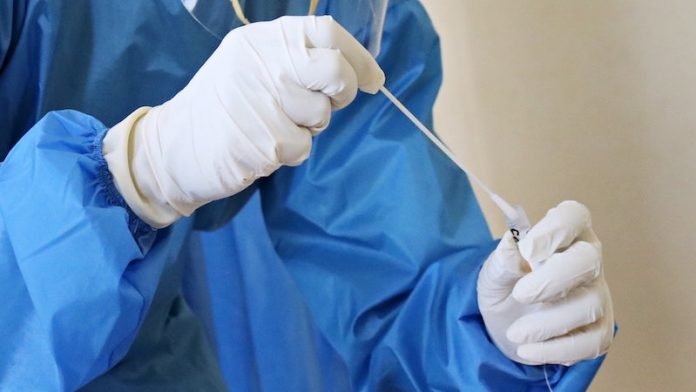
A new study from the University of Toronto found a drug with the potential to combat one of the most severe complications of COVID-19 infections.
The molecule, a novel anti-inflammatory peptide called QHREDGS, does not act on the virus directly. Instead, it works to prevent a potentially life-threatening immune reaction known as a cytokine storm.
The study is published in Lab on a Chip and was conducted by Professor Milica Radisic et al.
Cytokine storms are known to occur in some patients with COVID-19, as well as other illnesses.
Too many cytokines push the immune system into overdrive and can lead to vascular complications, multi-organ failure and even death.
In the study, the team used their expertise in organ-on-a-chip technology to study the issue.
They infected a microfabricated perfusable blood vessel-on-a-chip with SARS-CoV-2 to understand how the virus triggers inflammation and vascular dysfunction.
The team found that the compound enhanced vascular functions and repaired the harmful effects of SARS-CoV-2.
For example, the function of a vascular structure known as the endothelial barrier was improved by 62 percent compared with endothelial cells without the peptide, and the secretion of some cytokine storm molecules had been decreased between 1,000 to 10,000 times.
The researchers are also using the vasculature-on-a-chip system to better understand the causes of myocarditis that have been seen in COVID-19 patients, as well as in some individuals who have been vaccinated against the disease.
Recent studies have found antibodies that can neutralize Omicron, and people with COVID-19 infections may age much faster, which are highly relevant to the current study.
Sign up for our newsletter for more information about this topic.
Previous research found several drugs to fight severe COVID-19.
In a study from Centro Nacional de Investigaciones Cardiovasculares, researchers found metoprolol, a drug widely used to treat heart disease, is beneficial when administered to COVID-19 patients.
The most severe form of COVID-19 is severe respiratory failure, which requires intubation and is associated with a high mortality rate.
Pulmonary infection with the SARS-CoV2 virus can progress to acute respiratory distress syndrome (ARDS), in which inflammation and neutrophil hyperactivation play a central role.
There is currently a lack of therapies for ARDS associated with COVID-19.
In a previous study, the team discovered that metoprolol, a well-established beta-blocker, has a highly selective effect on hyperactivated neutrophils during situations of acute stress such as a heart attack.
Given the central role played by neutrophils in ARDS, the team postulated that metoprolol might be an effective treatment for patients with severe COVID-19.
The team assigned 20 intubated COVID-19 patients to receive intravenous metoprolol (15 mg per day over 3 days) or to a control group that did not receive metoprolol.
They found that the metroprolol treatment strongly reduced neutrophil infiltration of the lungs and improved oxygenation.
There was a clear trend among the metoprolol-treated patients to require fewer days on mechanical ventilation and therefore a shorter stay in the ICU.
The team says that metoprolol treatment in this clinical setting is safe, is linked to a very strong reduction in lung infiltration, and appears to lead to very rapid improvements in patient oxygenation.
The researchers therefore propose intravenous metoprolol as a promising intervention that could improve the prognosis of severely ill COVID-19 patients.
They also emphasize that metoprolol is a safe and cheap drug (daily treatment cost below €2) that is readily available.
If you care about COVID, please read studies about why people with blood Type O less likely to get COVID-19, and drug that can treat COVID-19 effectively and safely.
For more information about COVID, please see recent studies about Omicron variant: What you need to know, and results showing for people over 50, even ‘mild’ COVID 19 can cause dangerous health problems.
Copyright © 2022 Knowridge Science Report. All rights reserved.



